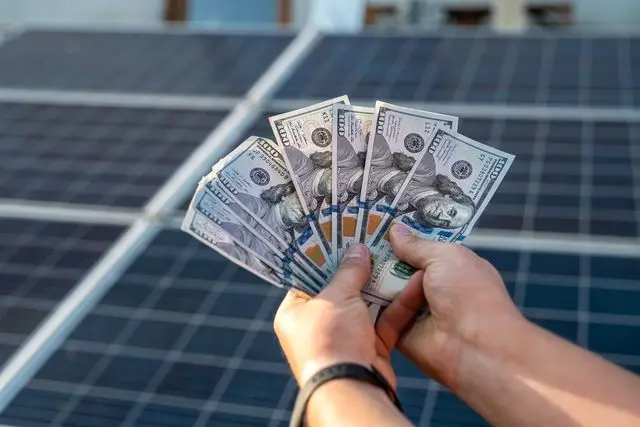Solar energy’s popularity has risen recently as individuals seek to lessen their reliance on fossil fuels and lower their overall carbon impact. Rebates for solar panels are a major factor in the industry’s rapid expansion. In this article, we will examine solar panel rebates to better understand what they are, how they function, and how you may benefit from them.
What are solar panel rebates?
Solar panel rebates are incentives governments and utility companies offer to encourage individuals and businesses to switch to clean renewable energy sources. With the increasing concern over climate change and the depletion of non-renewable energy sources, many countries have prioritized reducing their carbon footprint and shifting towards cleaner, more sustainable energy sources. Solar panel rebates are one-way governments and utility companies are making it more affordable for people to switch to solar energy.
The rebates come in cash payments, tax credits, or reductions in utility bills, which can significantly lower the upfront cost of installing a solar panel system. These incentives can be especially helpful for individuals and businesses who are looking to reduce their energy costs and carbon footprint but may not have the financial resources to invest in a full solar panel system.
How do solar panel rebates work?
Solar panel rebates work by offering financial incentives to individuals and businesses who install solar panels. The exact form of the incentive varies, but it can come in the form of cash payments, tax credits, or reductions in utility bills.
Cash payments are a direct financial incentive; the government or utility company will provide a cash payment to those installing a solar panel system. The payment amount will vary depending on the specific program, but it can be a significant portion of the system’s total cost.
Tax credits reduce the amount of taxes owed by individuals or businesses installing solar panels. For example, a 30% federal tax credit is currently available for residential solar panel systems in the United States.
Reductions in utility bills are another form of a rebate. The utility provider will give you a bill credit equal to the quantity of electricity your solar panels produce under this program.
Each rebate program is different, and the specific requirements and incentives available will vary depending on the location and program. However, all these programs aim to make it more affordable for people to switch to solar energy and reduce their carbon footprint.
Types of solar panel rebates
Several types of solar panel rebates can vary based on location, size of the system, and other factors. Common solar panel incentives include the following:
- Cash Rebates: Governments or utility companies provide a direct cash payment to individuals or businesses who install a solar panel system. This can be a significant portion of the total cost of the system.
- Tax Credits: Tax credits reduce the taxes owed by individuals or businesses installing solar panels. For example, the federal government in the United States offers a 30% tax credit for residential solar panel systems.
- Feed-in Tariffs: With this type of program, the utility company pays individuals or businesses for the excess electricity generated by their solar panel system. This can effectively reduce the cost of a solar panel system and make it more affordable.
- Net Metering: This type of program allows individuals or businesses to earn credits on their utility bills for the excess electricity generated by their solar panel system. The credits can be used to offset the cost of electricity used from the grid.
- Grants: Governments or non-profit organizations provide grants to individuals or businesses who install solar panels. This type of program can help offset the cost of a solar panel system, making it more affordable for people to switch to clean energy.
Most solar panel rebates fall into one of these categories. The specific programs available and the incentives offered will vary depending on the location, so it is important to check with local governments and utility companies for more information.
Eligibility for Solar Panel Rebates
Solar panel rebates are typically available for individuals and businesses installing a solar panel system in their homes or business. To qualify for rebates, solar panel systems must meet size, panel type, and placement requirements. Additionally, the rebate program may require a licensed and certified contractor to install the system.
The rebate amount will depend on the specific program, but it can range from a few hundred to several thousand dollars.
Benefits of Solar Panel Rebates
The benefits of solar panel rebates are numerous and include the following:
- Lower upfront costs: Solar panel rebates can significantly lower the upfront cost of installing a solar panel system, making it more affordable for individuals and businesses to switch to clean energy.
- Lower energy costs: Solar panels can generate significant energy, significantly reducing an individual or business’s energy costs. Additionally, many programs offer net metering, which allows individuals and businesses to sell excess energy back to the grid, further reducing their energy costs.
- Increased energy independence: Solar panels allow individuals and businesses to generate their own energy, reducing their dependence on non-renewable energy sources and making them less vulnerable to fluctuations in energy prices.
- Reduced carbon footprint: Solar panels produce clean, renewable energy, so people and companies may minimize their carbon footprint and help the environment.
- Increased property value: Installing a solar panel system can increase a property’s value, making it a smart investment for individuals and businesses who are looking to sell their property in the future.
How to Apply for Solar Panel Rebates
The process of applying for a solar panel rebate varies depending on the specific program and the location but typically involves the following steps:
- Research: Research different rebate programs and determine which ones are available in your area.
- Consult a professional: Consult a licensed and certified contractor to determine the best system for your needs.
- Apply for the rebate: Complete the necessary forms and submit them to the appropriate agency.
- Install the system: Install the solar panel system with the help of a licensed and certified contractor.
- Claim the rebate: Once the system is installed, claim the rebate and receive the cash payment, tax credit, or reduction in your utility bill.

Factors that Impact the Availability of Solar Panel Rebates
Several factors can impact the availability of solar panel rebates, including:
- Location: The availability of solar panel rebates can vary greatly depending on the location. Some states, cities, and utility companies offer more generous rebates and incentives than others.
- Type of system: The type of solar panel system installed can impact the availability of rebates. For example, some programs may only offer rebates for residential systems, while others may include commercial and industrial systems as well.
- System size: The size of the solar panel system can also impact the availability of rebates. Some programs may only offer rebates for smaller systems, while others may offer rebates for larger systems.
- Timing: The timing of when the solar panel system is installed can also impact the availability of rebates. Some programs may only be available for a limited time, while others may be ongoing.
- Budget: The budget for rebates and incentives can also impact the availability of rebates. When tight budgets, rebates may be reduced or not available.
Bottom Line
In conclusion, solar panel rebates can significantly make the transition to clean energy more affordable. These programs provide financial incentives to individuals and businesses who install solar panels, reducing the upfront cost and making it easier for people to switch to clean energy. However, the availability of rebates can vary greatly depending on location, type of system, system size, timing, and budget. It is important to research the programs available in your area and to work with a trusted professional to ensure that you receive the maximum benefit from solar panel rebates. Solar panel rebates help lessen our dependence on fossil fuels and conserve the environment for future generations by encouraging renewable energy usage.
Don’t get left in the dark – join the solar revolution and request your free quote today at freesolarpowerquotes.com!
FAQS
What are solar panel rebates?
Solar panel rebates are financial incentives governments or utility companies provide to individuals or businesses who install solar panels. The rebates can help reduce the upfront cost of a solar panel system, making it more affordable for people to switch to clean energy.
How do solar panel rebates work?
Rebates for solar panels can be provided in various ways, including as a tax credit, cash rebate, feed-in tariff, net metering credit, or grant. The specific program and how it works will vary depending on the location.
Who is eligible for solar panel rebates?
Eligibility for solar panel rebates can vary depending on the program and the location. Some programs may only be available to residential systems, while others may include commercial and industrial systems as well.
How much can I save with rebates for solar panels?
Solar rebates can save you zero to thousands of dollars, depending on the program, region, system size, and installation cost. In some cases, rebates can be a significant portion of the system’s total cost, while in other cases, the savings may be more modest.
What is a solar panel incentive?
Solar panel incentives are financial or monetary rewards offered by government agencies, utilities, or other organizations to encourage the adoption and use of solar panels. These incentives can come in the form of tax credits, rebates, grants, subsidies, or other financial incentives that reduce the cost of installing and using solar panels, making them more affordable and accessible to homeowners, businesses, and communities. The goal of solar panel incentives is to promote clean, renewable energy and help reduce greenhouse gas emissions and our dependence on fossil fuels.
When are solar panel rebates available?
The availability of solar panel rebates can vary depending on the program and the location. Some programs may only be available for a limited time, while others may be ongoing.
How do I apply for solar panel rebates?
The process for applying for solar panel rebates will vary depending on the program and the location. If you want details about rebates and how to apply for them in your area, it’s best to contact the relevant government agencies and utility providers directly.
What happens if the rebate program ends or is discontinued?
If a rebate program ends or is discontinued, it will not affect the operation of your solar panel system. The rebates are a one-time benefit; the system will continue to generate clean energy and save money on your energy bill.
Are there rebates for solar panels?
Yes, there are rebates available for solar panels in many areas. The amount of the rebate and the availability of rebates will depend on your location and the specific program offered by your government or utility company.
How much is the rebate for solar panels?
Solar panel rebates range from hundreds to thousands of dollars. The amount of the rebate will depend on the specific program and the size of the system being installed.
What is the tax rebate for solar panels?
In addition to rebates, tax incentives are available for solar panels in many areas. The tax rebate for solar panels can be in the form of a tax credit or a tax deduction and can significantly reduce the overall cost of a solar panel system.

